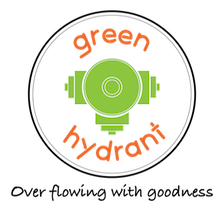The turmeric has been used for centuries as both a spice and medicinal herb. But does the golden spice truly hold healing properties or are its benefits traditionally believed?

An Anti-inflammatory Root
With its bright yellow-orange color, curcumin (the main active ingredient of turmeric) works as a powerful antioxidant and has strong anti-inflammatory properties.
While short-term inflammation is beneficial to the body as it fights off infection, repairs damages and is part of the body’s healing process, long-term inflammation is a symptom of other health conditions such as arthritis (chronic inflammation of joint tissue), Alzheimer’s (chronic inflammation of nerve cells), and the root of many other diseases, including cancer.
Research shows that when inflammatory cells attack tissue or other cells, curcumin blocks certain proteins and enzymes helping the turmeric live up to its reputation as an anti-inflammatory root.

Brain-Booster Benefits
Many common brain disorders including Alzheimer’s disease, dementia and depression have been linked to decreased levels of BDNF (brain-derived neurotrophic factor), a protein that protects and supports the life of neurons. Studies have found that curcumin may increase levels of BDNF helping to delay or reverse the effects of brain diseases or age-related degenerations of the brain.
Studies also indicate that curcumin prevents and breaks up neuritic plaque present in the brain and associated with Alzheimer’s disease. It is no wonder that in Ayurvedic medicine the turmeric is known as “cleanser of the body”.
 Digestive Aid
Digestive Aid
Turmeric is also often used as a remedy for gut inflammation and other digestive discomforts such as indigestion, diarrhoea, constipation, stomach cramps, and acid reflux.
Heart Health
Can the turmeric also lower the risk of heart disease? While many factors contribute to heart disease, curcumin may have beneficial effects on some of those contributing factors.
Curcumin improves the function of the endothelium, the lining of your blood vessels. Its dysfunction is a major cause of heart disease as it regulates blood pressure, blood clotting and other factors vital to heart health.
Additionally, curcumin also reduces inflammation and oxidation, which can play a role in heart diseases.

Curcumin or "Cure-cumin"
Multiple studies have shown promising results of curcumin and the turmeric’s many healing properties. But should this unassuming root be moved from the kitchen and into the clinic?
While the turmeric has proven to be a powerful anti-inflammatory with anti-septic and anti-viral properties, always check with your doctor before using the turmeric for your symptoms as it may interact with your medication.
If you are looking to alleviate some exercise-induced muscle inflammation, arthritic joint pains or even anxiety, there are potential health benefits worth exploring with this amazing root.

Click to find out more about our g1-2 Carrot Turmeric juice and B2 Turmeric Lemon Booster.
